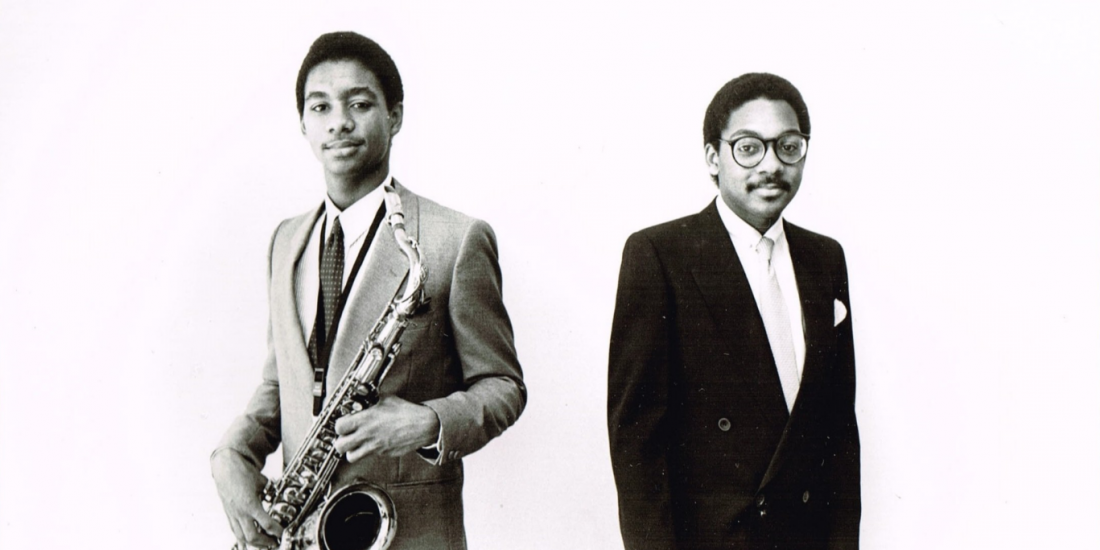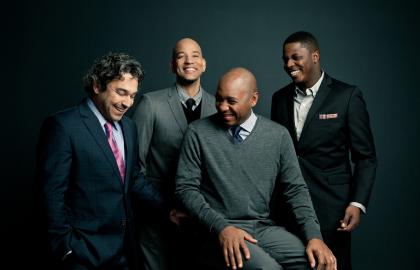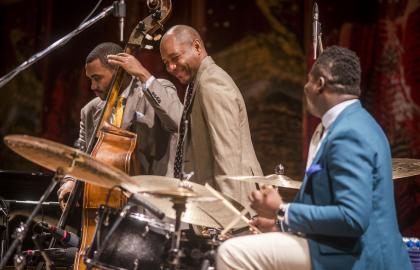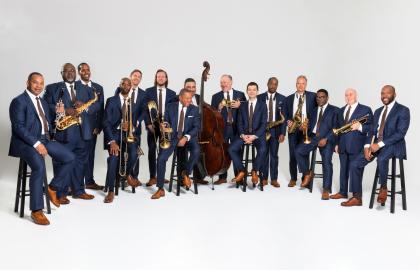The right paths
Music is a family affair for the Marsalis. And for good reason, as their story is closely linked to the birthplace of jazz: New Orleans. It was there that it all began, with a meeting between Ellis Marsalis Jr., a pianist and lecturer in music at the university, and Dolores Ferdinand, a singer from a family of famous musicians in Louisiana. The couple went on to have six sons, four of whom would go into music.
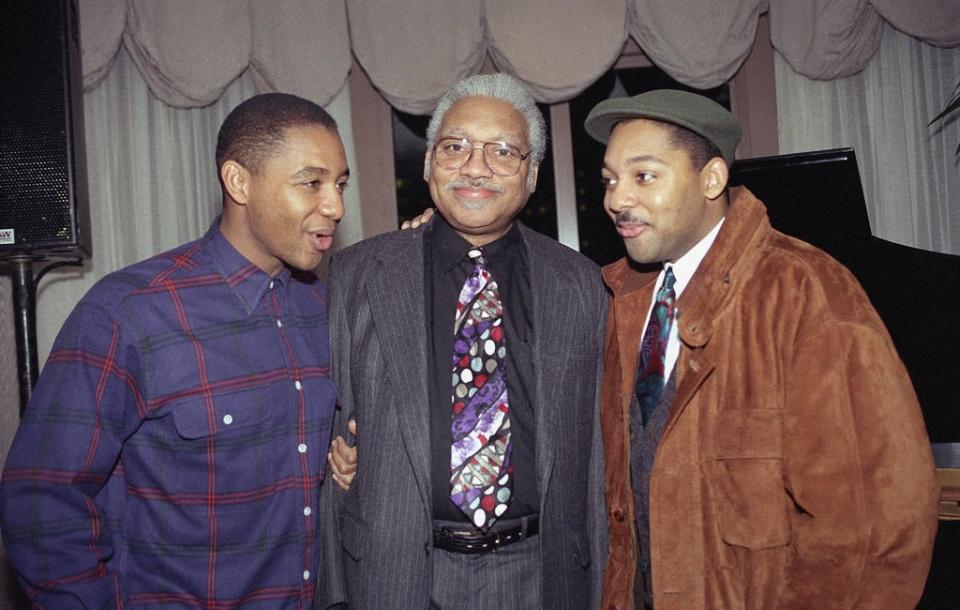
Branford is the oldest of the brothers. He is a clarinettist who later took up the saxophone. Wynton is one year younger than his brother and a bit of a latecomer to the trumpet; he received his first trumpet at the age of 6, but only began to play seriously from the age of 12. Then there is Delfeayo, a trombonist and future producer of his elder brothers, and lastly Jason, the youngest, who chose to play the drums.
The four brothers learnt classical music while at school, and jazz at home. But two of them proved to have exceptional musical talents. Branford and Wynton left their native Louisiana to study in prestigious institutions, the former at Berklee College of Music in Boston, and the latter at the Juilliard School in New York. The future was unfolding…
A common starting point
Both brothers already showed a great degree of maturity during their studies. They soon joined the big band of hard bop legend Art Blakey. Won over by the flare of this 19- year-old trumpeter, the drummer invited Wynton to enter the inner circle of the Jazz Messengers. Branford was also keeping busy, rubbing shoulders with top names such as vibraphonist Lionel Hampton and trumpeter Clark Terry. And it was not long before he too joined Art Blakey's band.
The brothers created fireworks when they played together. The combination of the full, clear, smooth sound of Wynton and the melodic and rhythmic creativity of Branford was truly mesmerising. Herbie Hancock himself found it irresistible and invited the Marsalis brothers to join him on tour in 1981.
The brothers enjoyed acting as sidemen for the big stars. But their heads were overflowing with ideas. Wynton founded his own quintet in 1982, in a desire for greater freedom. It comprised Branford Marsalis on the tenor and soprano sax, Kenny Kirkland on the piano, Phil Bowler on the double bass and Jeff Watts on drums.
The group's first record, simply entitled Wynton Marsalis, was warmly received. But it was the album Think of One (1983) that earned Wynton his first Grammy (Best Jazz Instrumental Performance, Soloist) – eight more Grammies would follow.
The following albums alternated with concert tours, each time earning praise from both critics and the public. But in 1985, Branford left the quintet to carve his own path.
Brilliant careers
In reality, Branford struck out on his own in 1984, with his first solo record Scenes in the City. Through this evocation of a jazz player's night-time wanderings through the streets of Manhattan, the young saxophonist expressed the rebirth of an artist freed from all artistic allegiances.
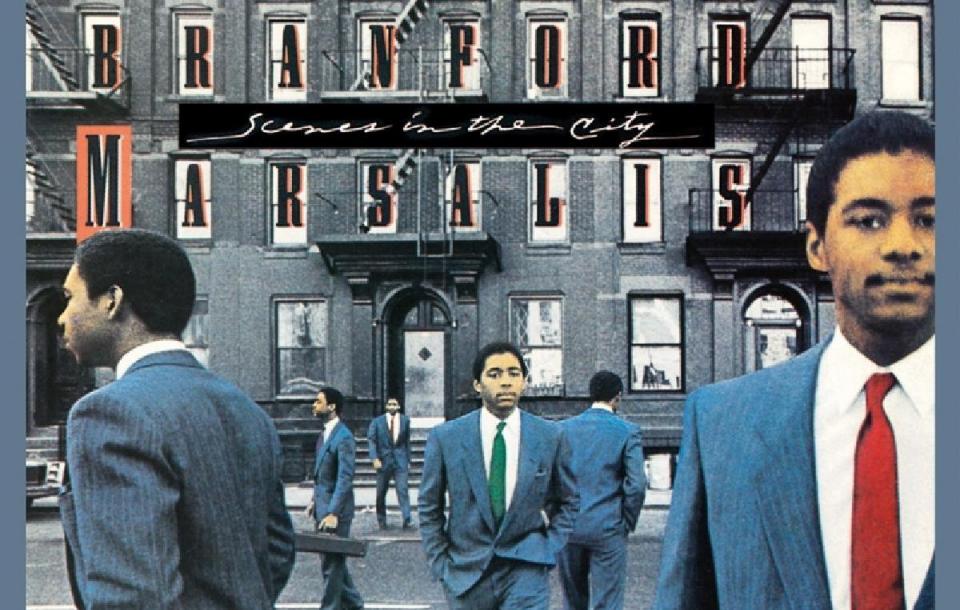
For Branford, 1985 would be synonymous with exploration. As well as his departure from Wynton's quintet, this year marked the saxophonist's arrival in the world of funk rock that set the 1980s alight. He joined the band of the British singer Sting, who launched his solo career after playing in The Police. This collaboration led to several world-famous records, such as the massive hit Englishman in New York, on which Branford's soprano sax acted as a resounding emblem for the Big Apple and its ethereal atmosphere.
Branford then founded his own quartet, together with his former partners Watts and Kirkland, plus Robert Hurst on the double bass. The next stage of his career was punctuated by a number of Grammy award-winning projects and several high-profile collaborations. His partners included Dizzy Gillespie, Terence Blanchard, Joey Calderazzo and his brother Wynton, whom he joined on several recordings during the 1990s.
And Wynton was not to be outdone. He was also playing in great company, in particular with Sarah Vaughan and Sonny Rollins, but also with Eric Clapton, with whom he played in a pure blues duet.
The trumpeter has more than one string to his bow, having been passionate about classical music since childhood. He recorded Hayden's Trumpet concerto with the New Orleans Symphony Orchestra when he was just 14. Until the 1990s, he joyfully alternated blues and traditional jazz compilations with a classical symphonic repertory. In 1984, he became the first musician to be awarded a Grammy in both the classical and jazz categories!
Wynton collected exclusives. In 1997, he was also the first jazz musician to receive the Pulitzer Prize, for his work Blood on the Fields; this oratorio recounts the bloody birth of the United States of America against a backdrop of colonialism and the slave trade. Because not only does he play instruments, he also dedicates himself to composition.
Lastly, it is important to mention his successful link with one of the most famous musical institutions in New York, the Jazz at Lincoln Center Orchestra, as he became its artistic director in 1991. In its company, the trumpeter and conductor visited the world's greatest stages, playing the great jazz repertoire and combining it with an element of education.
Between one brother's custodian mission and the other's eclectic career, their aesthetic paths seemed to be moving in different directions.
The family reunion
However, one date would act as a crossroads for their destinies. On 4 August 2001, the Marsalis sons found themselves on the stage at the University of New Orleans in the company of their father Ellis, a pianist and lecturer, who was retiring. As well as Wynton and Branford, the sextet was composed of their father Ellis on the piano, the other brothers Delfeayo on the trombone and Jason on drums, and the double bass player Roland Guerin (a family friend). The band played a varied set in an extremely relaxed family atmosphere. Wynton and Brantford celebrated their fraternal bond with the very beautiful Cain and Abel, composed by Branford Marsalis; it is a reflection on brotherhood and an ode that seems to be reflected for all eternity…
